Little girls will have to wait 4 more years, Warren says, as 2020 race loses viable female candidates
A record number of female candidates ran for president this election cycle.
Four years ago, a major political party nominated the first female presidential candidate in history. Even before Hillary Clinton topped the ticket, there was Shirley Chisholm, the first black major-party candidate to run for president and the first woman ever to run for the Democratic Party's nomination. And two years ago, women turned out in droves to elect a sweep of women to Congress. Now, there are no realistically viable female candidates left in the 2020 race for president.
Six women -- a record number -- entered the race this election cycle, but with the latest departure of Massachusetts Sen. Elizabeth Warren, there are no top-tier female candidates left in the running. Although Hawaii Rep. Tulsi Gabbard is still in the race, it's all but certain a heterosexual, white male in his 70s will secure the presidency.
Some have raised the question: How did sexism play into the 2020 primaries?
In her statement endorsing former Vice President Joe Biden on Sunday, fellow former presidential contender Sen. Kamala Harris, D-Calif. lamented the fact that numerous female candidates have ended their presidential bids this cycle, adding that she will "have more to say," on the topic in the future.
"Like many women, I watched with sadness as women exited the race one by one. Four years after our nominee, the first woman to win the nomination of a major party, received 3 million more votes than Donald Trump but still lost, we find ourselves without any woman on a path to be the Democratic nominee for president. This is something we must reckon with and it is something I will have more to say about in the future," Harris wrote.
Warren tried to dodge what she called a "trap question" moments after announcing she would drop out. Still, she acknowledged that it was impossible to detach herself from the gender factor.
'When Hillary ran it was a hard heartbreak for those of us that support us, when she didn't make it.'
"If you say, 'Yeah, there was sexism in this race,' everyone says 'whiner,'" Warren told reporters outside of her home Thursday. "And if you say, 'No, there was no sexism,' about a bazillion women think, 'What planet do you live on?'"
When asked about the legacy her presidential run will create for other women and little girls, who she shared "pinky promises" with on the trail, Warren choked up.
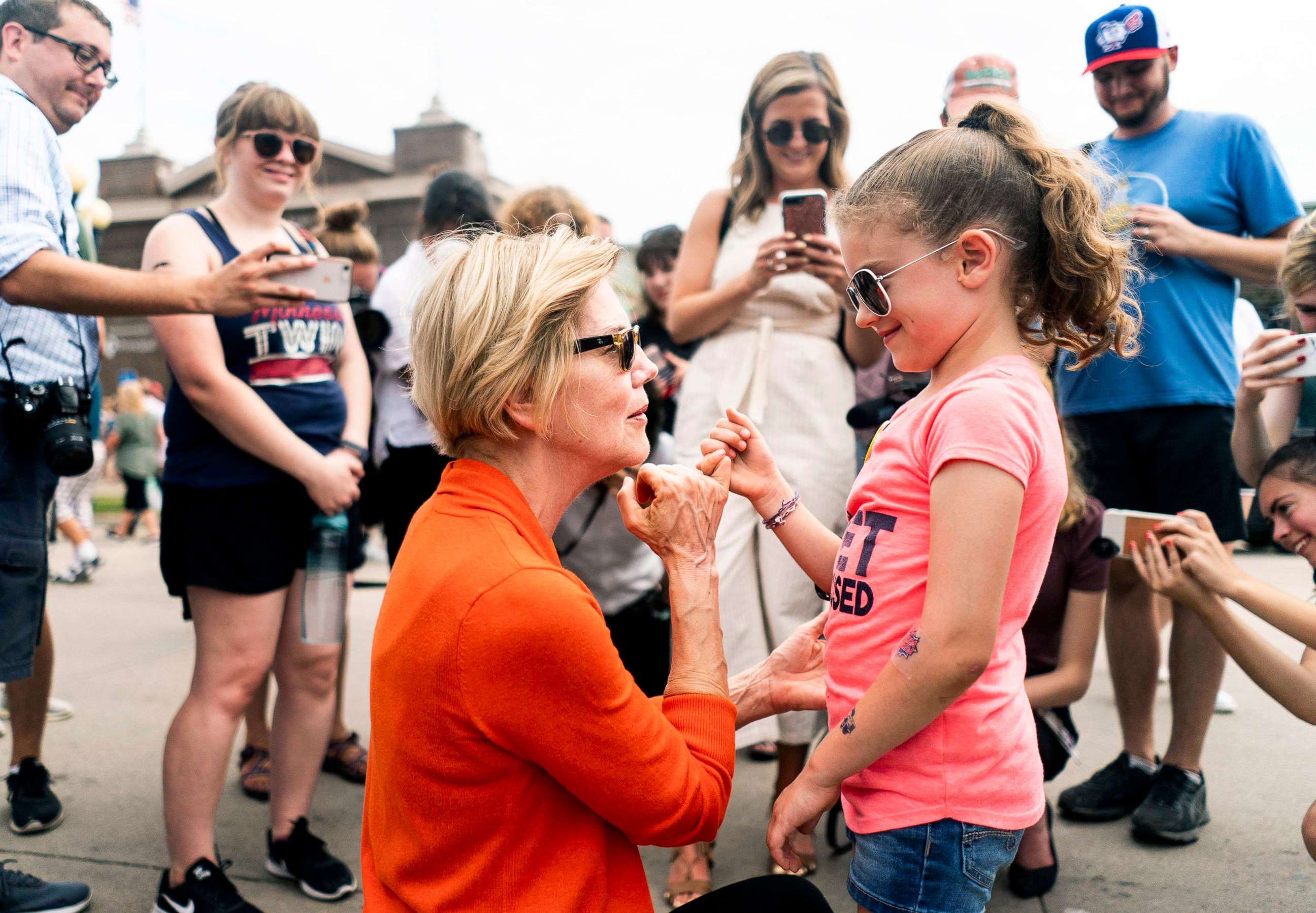
"One of the hardest parts of this is all those pinky promises. And all those little girls who are going to have to wait four more years. That's going to be hard," Warren said. "I take those pinky promises seriously."
Warren expanded on the gender factor in an interview with Rachel Maddow Thursday night. While she said that it's possible for a woman to take the White House, "perhaps soon," she also acknowledged the pain she felt that it wasn't sooner.
"I walked through my headquarters today and ... I saw all those women who said, 'Thank you for being smart and making that OK. Thank you for talking over men sometimes because I'm just damn tired of always having it go the other way.' It's one of the hardest parts about this ... but it doesn't mean it's not going to happen. It doesn't mean it's not going to happen soon," Warren said.
"You get in the fight because you just got to keep beating at it until you finally break the thing. We'll know that we can have a woman in the White House when we finally elect a woman to the White House," she added.
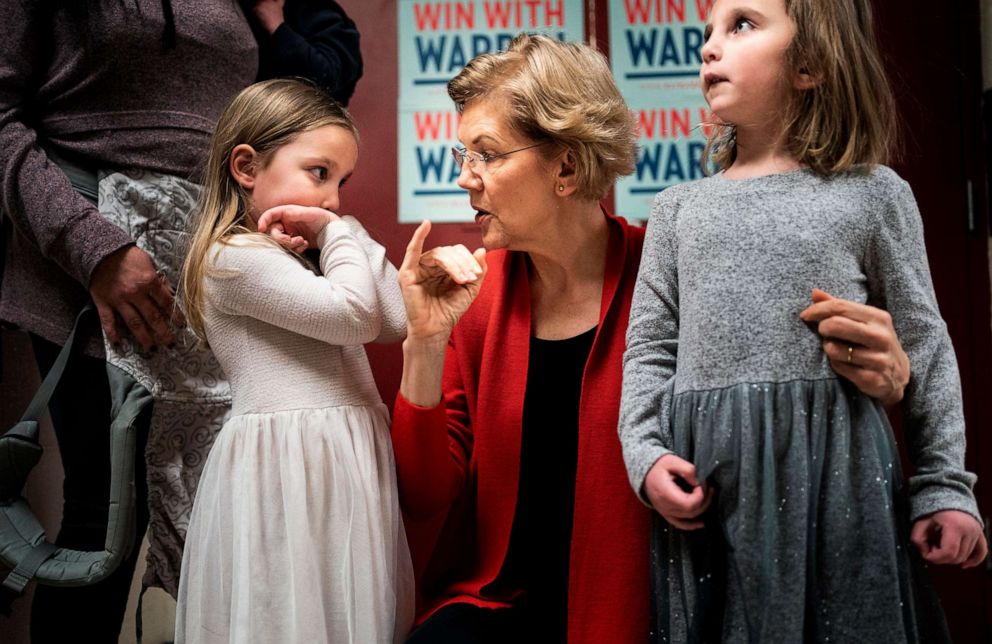
Warren's chief strategist, Joe Rospars, was more direct in lamenting the "unfair double standards women face."
"No amount of sympathy, empathy or study can give me a real sense of the unfair double standards women face every single day. But advising Elizabeth as she navigated that tightrope gave me a small glimpse. It's wild and rage-inducing and exhausting," Rospars said in a Twitter thread.
Another former female presidential candidate this cycle, New York Sen. Kirsten Gillibrand also weighed in on Twitter following Warren's departure, even linking to an organization that backs female candidates.
"I know days like today are tough. Trust me, I really know. But I also know that the best path forward is to dust ourselves off and get to work on the things we can control, like taking back the Senate from Mitch McConnell," Gillibrand said.
Speaker Nancy Pelosi, the first woman in U.S. history to hold her title, also had strong words when asked Thursday about the likelihood of a female president.
Asked whether Democratic voters did not select a woman nominee because they feared a woman could not beat President Donald Trump, Pelosi first said, "I think anybody could beat President Trump," before expanding on her answer. "I don't think you get a woman president by saying, 'We should have a woman.' You get a woman president saying, 'This is the best person for the job,' and any one of them could have fulfilled that description."
"Every time I get introduced as the 'most powerful woman blah blah blah,' I almost cry because I'm thinking I wish that were not true," Pelosi continued.
"I so wish that we had a woman president of the United States, and we came very close to doing that -- a woman who was better qualified than so many people who have sought that office and even won it," she added, seemingly referring to how former Secretary of State Hillary Clinton won the popular vote by at least 3 million votes.
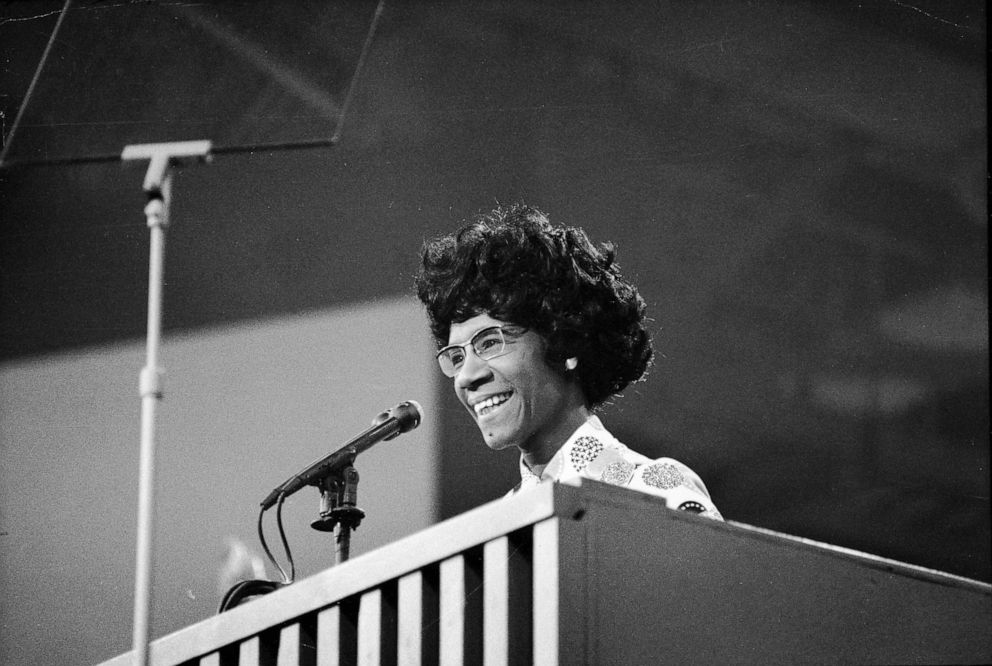
Pelosi said she had always thought the public would be "much more ready for" a woman president than for a woman speaker.
"I think the American people are ready," she added. "I never thought we would have a woman speaker of the House before a woman president, because if you want to talk about tradition or whatever that is, this is a marble ceiling. It's not a glass ceiling."
The man who defeated Clinton in the electoral college, Trump, also commented after Warren's exit. When asked if sexism was a factor in her departure from the race, Trump called her a "mean person."
"I think lack of talent was her problem," Trump told reporters at the White House Thursday. "She had a tremendous lack of talent. She was a good debater. She destroyed Mike Bloomberg very quickly like it was nothing. That was easy for her, but people don't like her."
"She is a very mean person, and people don't like her. People don't want that," the president added.
"Sexism was at the core of this election and 2016," said Dr. Ashley Dreff, director of women and gender studies and an assistant professor of religion at High Point University. "Women are continually held to double standards and higher standards in society. Warren and Clinton were both easily the most eloquent, intelligent and qualified persons for president. Warren, especially, not only had a vision, but had plans for that vision. Every time she faced undue criticism, she adjusted and clarified her plan, and then was criticized again. Most of the male candidates have not come close to Warren's level of detail and have not been criticized for it."
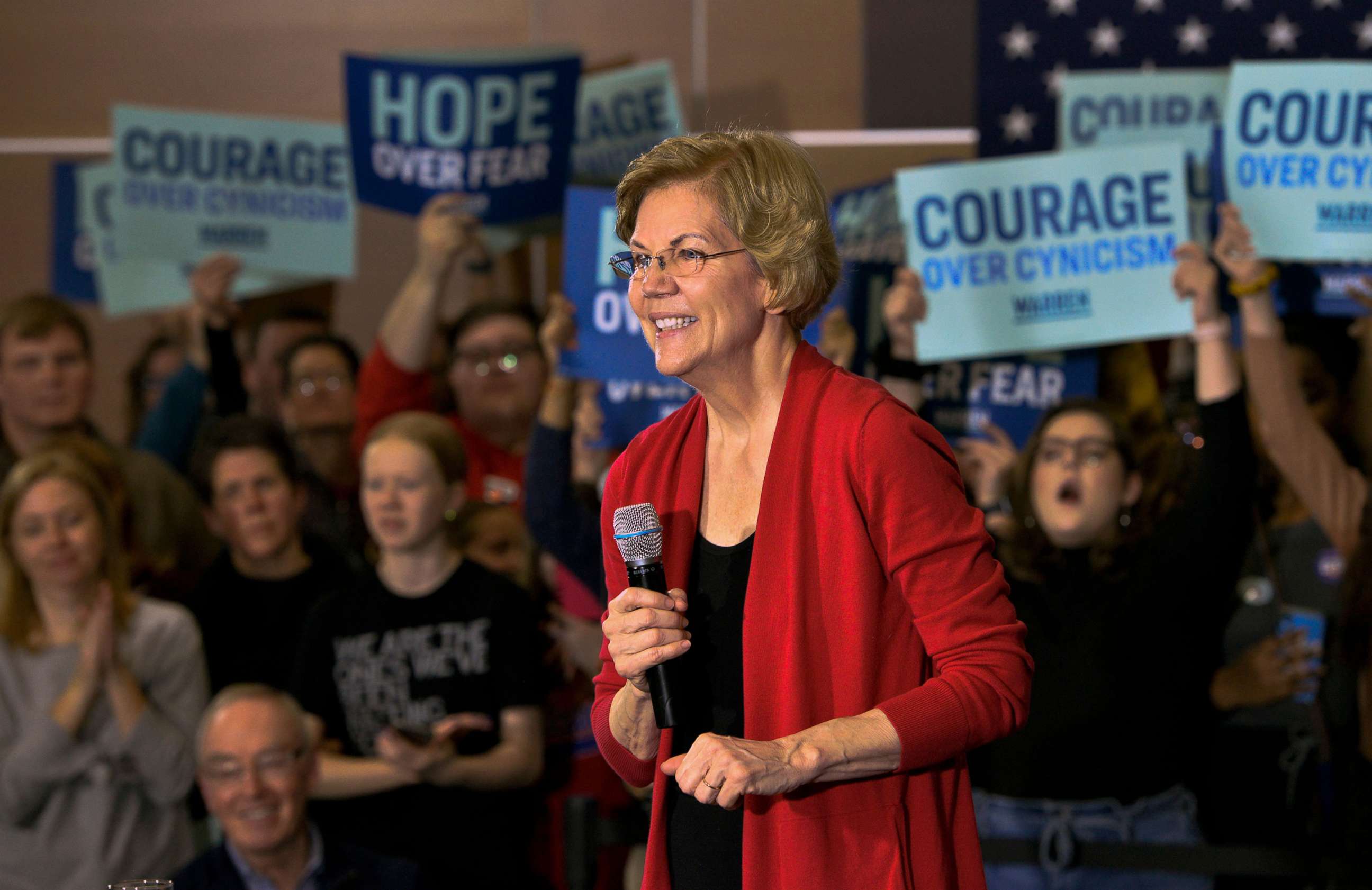
Warren's departure came just days after another prominent female senator, Amy Klobuchar of Minnesota, dropped out. Klobuchar also was asked on Friday about the lack of female representation left in the race.
"I think that having so many women up there on that stage, it was groundbreaking on its own. Literally the first night of the debate in the primary, we doubled the number of women that had ever run for president, on the first night," she said.
Klobuchar also revealed that the former Democratic nominee for president Hillary Clinton sent her a "very nice email" after she left the trail.
"When Hillary ran, it was a hard heartbreak for those of us that support us, when she didn't make it. But she literally did break the glass ceiling. And we're seeing higher numbers [of women running] than we ever did," she said.
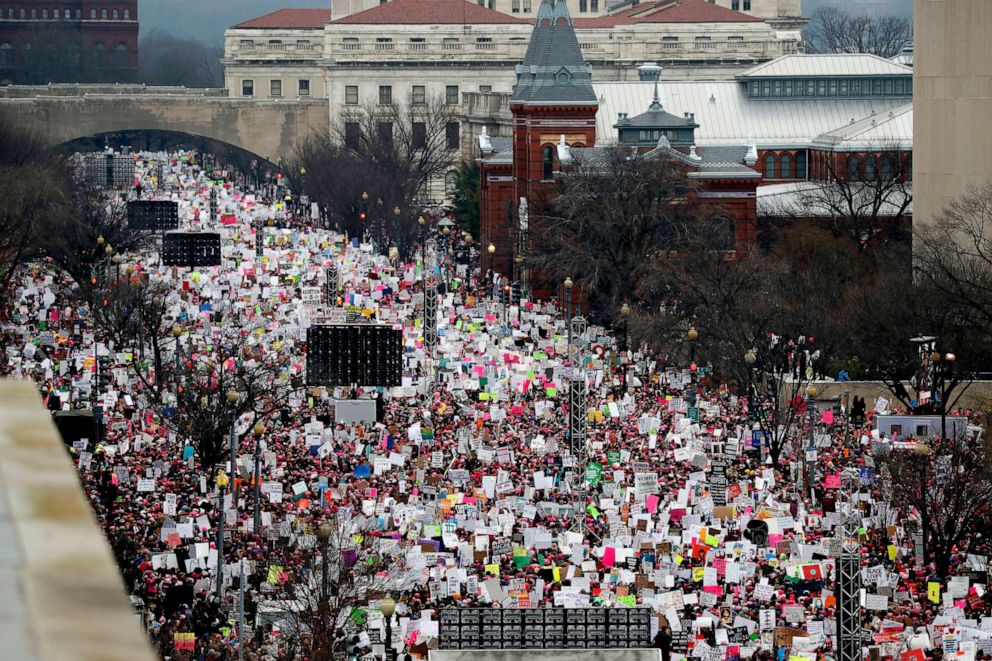
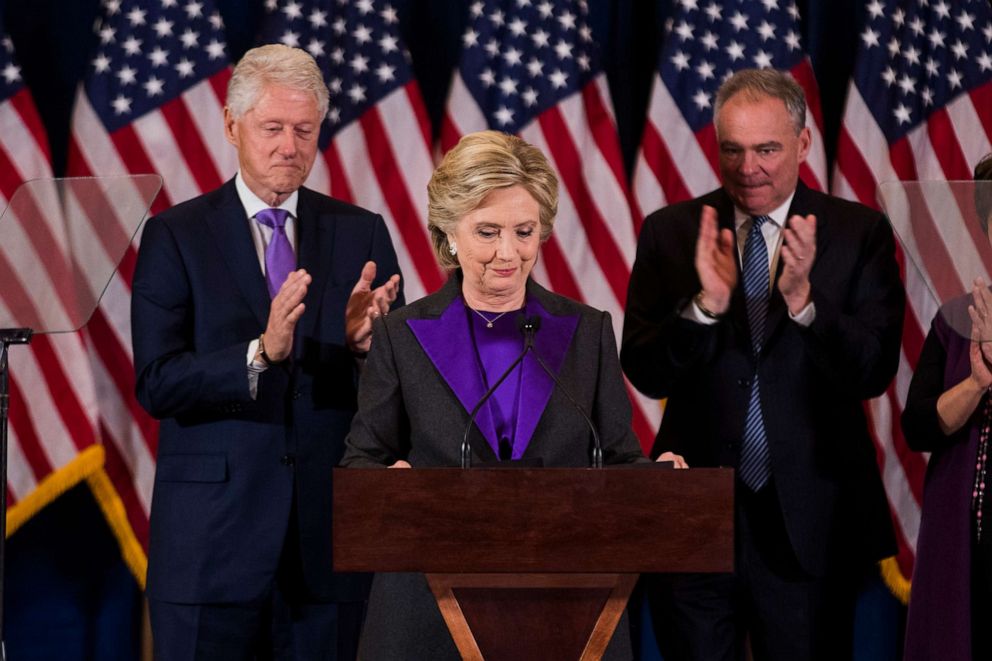
Anastasia Curwood, an associate professor and director of African American and Africana studies at the University of Kentucky College of Arts and Sciences, and an expert on Shirley Chisholm, suspects that Chisholm would be "disappointed" with the lack of women of color running for president.
"My guess is that she just would have been stunned that it took so long for somebody else to come on, especially women of color, to get any delegates. We still haven't seen a black woman get delegates again," Curwood said. "She probably would have been pretty disappointed."
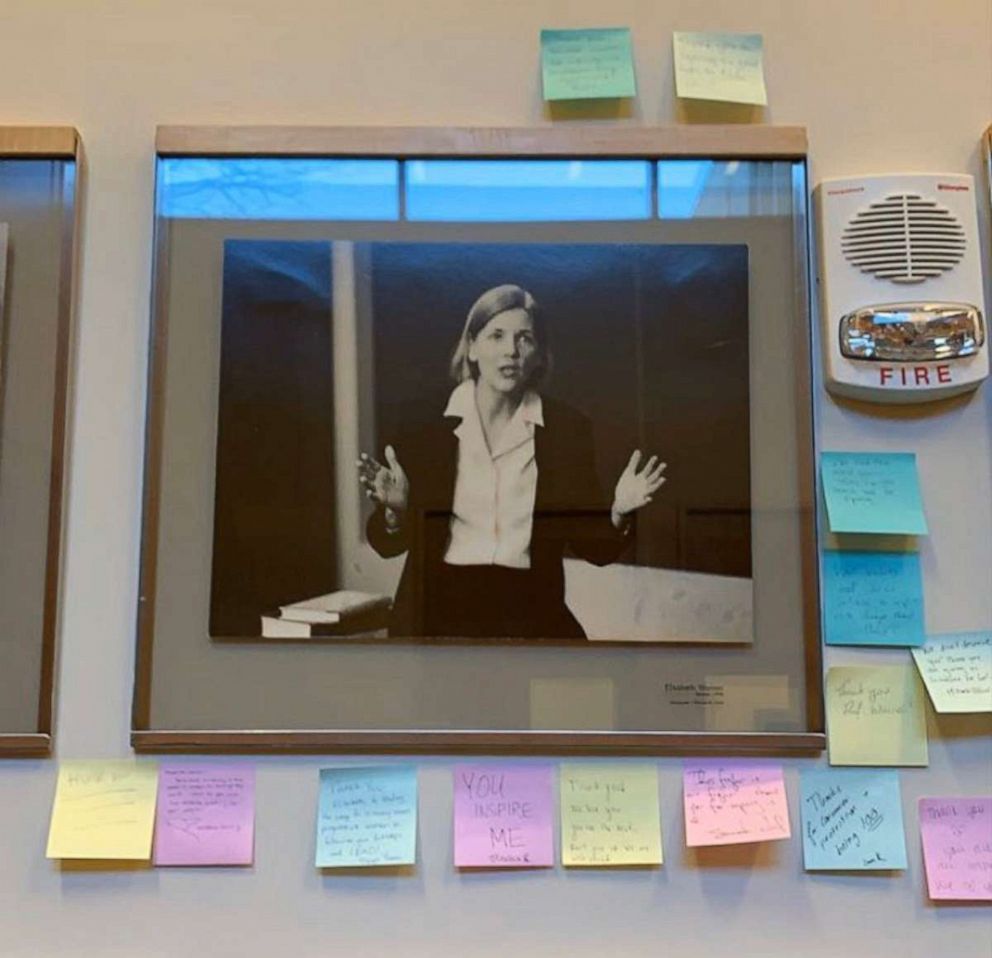
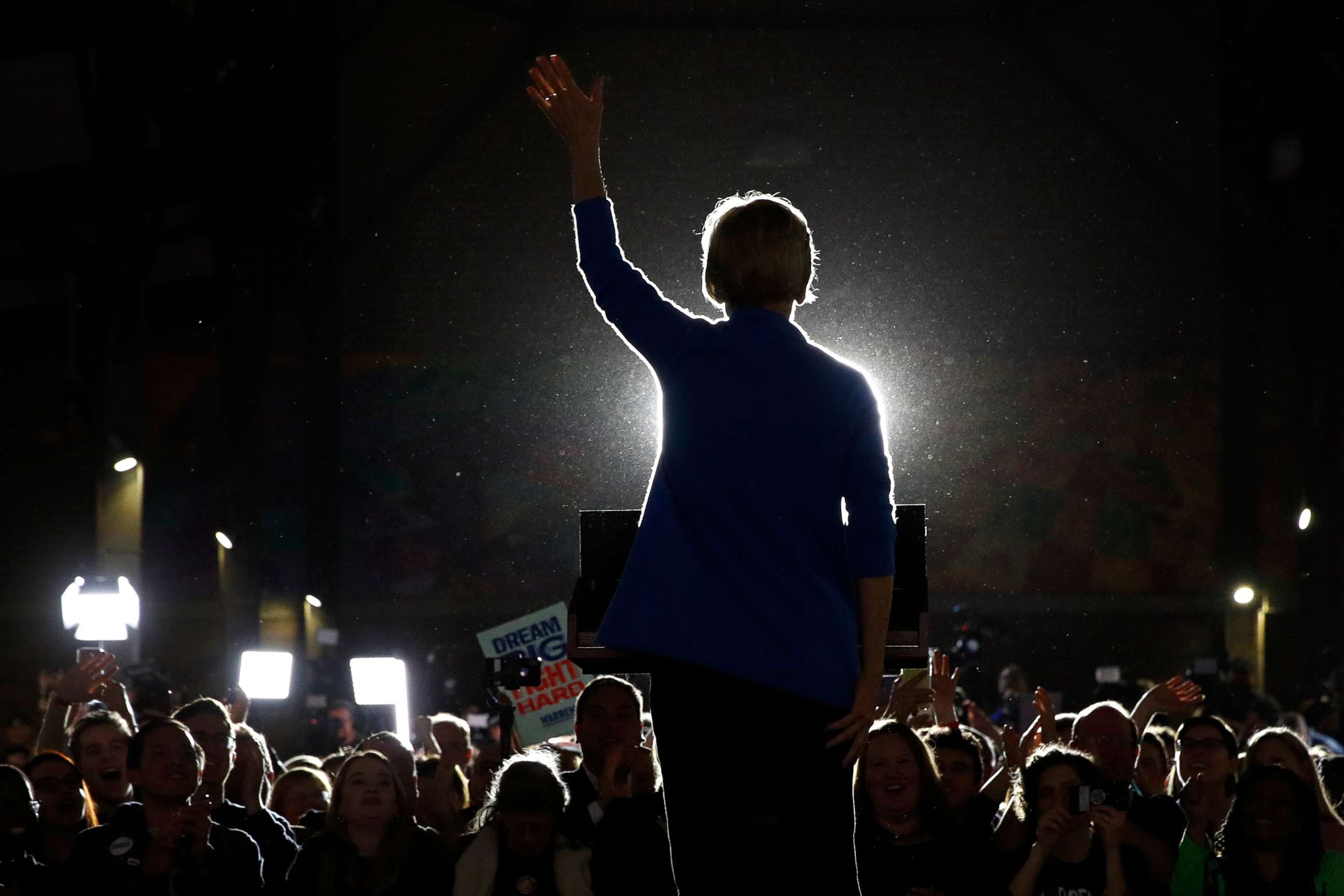
When Clinton ultimately lost the electoral college vote to Trump, she addressed the base of women and "little girls" in her concession speech who mobilized around her.
"To all of the little girls who are watching this, never doubt that you are valuable and powerful and deserving of every chance and opportunity in the world to pursue and achieve your own dreams," she said.
Between Clinton's concession speech and Election Day in 2018, a record number of women ran for Congress and state legislatures -- but Clinton said sexism still plays a pernicious role in elections, especially those for commander in chief.
"I think we made some progress, but there still was a lot of the unconscious bias and the gendered language that has been used around the women candidates," Clinton told Vanity Fair. "I think it affected all of the women that ran."
Dreff agreed, adding: "We need to continue to teach girls that they can dream, but dreaming necessitates fighting and persisting in our lived reality. This is not easy work. We also need to teach girls that sexism and misogyny exists in this world, and it's probably not going anyway anytime soon."
ABC News' Beatrice Peterson, Lissette Rodriguez, Sasha Peznik and Cheyenne Haslett contributed to this report.



